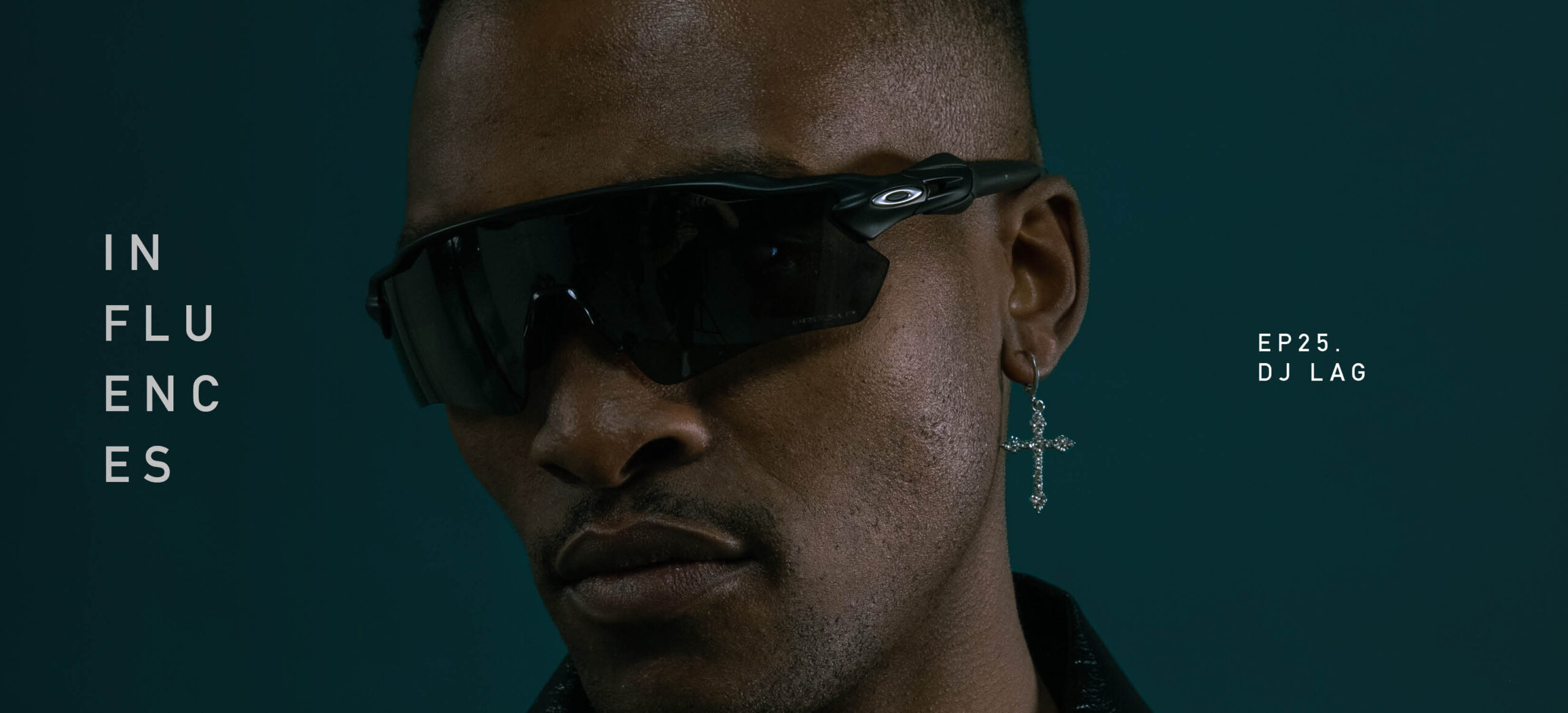Influences 25: DJ Lag
A peek behind the South African's distinctive gqom sound.

Influences 25: DJ Lag
A peek behind the South African's distinctive gqom sound.
DJ Lag—the alias of Lwazi Asanda Gwalahas—will release a new album this month. The Rebellion, as it’s called, marks a “bold evolution” of his distinctive gqom sound, we’re told, and builds on the success of his previous album, Meeting With The King, which established himself as a sonic innovator and leading ambassador of the genre, taking the bass-heavy, minimalist sound from South Africa to a worldwide audience. He achieved all this before the age of 30 and from his home in Clermont in the coastal city of Durban, which is where he began making beats using little more than FruityLoops as a teenager. Soon he was playing his tracks at local gigs and sharing them with taxi drivers who liked to use them to attract customers. Then, in 2015, following his blistering performance at the G-Star Raw x Boiler Room sessions in Johannesburg, his sound seeped out to an international audience, and a year later he released on London’s Goon Club Allstars—delivering four hypnotic originals ‘made for clubs … made for nightlife,’ he told DJ Mag. Ahead of The Rebellion’s release, DJ Lag has taken a moment to step back, digging into his record bag to find some of the key records and artists that have shaped his work, and compiled them into an Influences mix for XLR8R. A peek into DJ Lag’s past before he reveals the sounds of his future.
“Growing up I was exposed to different types of music and what you hear in this mix are some of the moments where my view of music and culture shifted.
“Msawawa is an early memory of a specific artist that got me to first love music from a very young age, and seeing someone from my own hood doing that also made me believe it’s a route I could take myself. DJ Bongz is the first DJ I saw performing and he made me want to be a DJ. Big Nuz’s “Stingray” was the biggest Durban kwaito song I was listening to when I was growing up.
“Kwaito was the style we grew up on and it’s music that was both expressive in terms of having political and resistance roots, while musically it drew inspiration from both house and hip-hop. It’s the prototype for everything that followed for my generation and shaped the whole culture, so the evolution to Gqom or any South African genre you hear out there today feels natural. It is deeply embedded in the slang, fashion and of course music that is being made today , and I guess you could say it was the Big Bang for South Africa’s youth culture.“
“I was listening to the Naked Boyz and Rude Boyz at the same time as I was experimenting with making music, which is why I’ve included some tracks of theirs. It was like listening to someone speaking your language in a foreign country and it all became a monumental part of my musical journey, which I am still on today. I’ve also included some of my own songs and some of the songs I am working on, which will give you a test of where I am going.” — DJ Lag
XLR8R Subscribers can download the podcast below. If you’re not an XLR8R subscriber, you can read more about it and subscribe here.
Tracklisting
01. Msawawa “Bowngakanani”
02. Mshoza “Kortes” (Kasi Luv)
03. Zola “Stars”
04. Msawawa “Bhibo”
05. DJ BONGZ “Sobabili”
06. Big Nuz “Stingray”
07. Naked Boyz “Hunters Gold”
08. Rude Boyz “Mitshubishi”
09. DJ lag “Ice Drop”
10. Dj Lusiman “Wamnandi Uqoh”
11. Babes Wodumo “Wololo”
12. Dj lag x Da Man “Dubula”

